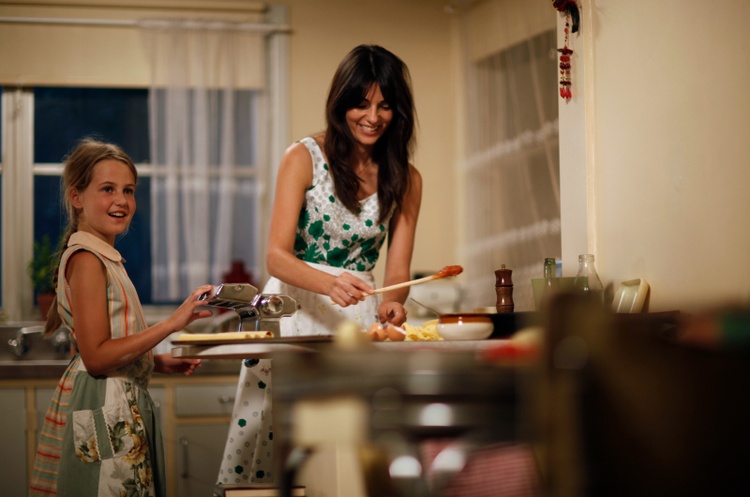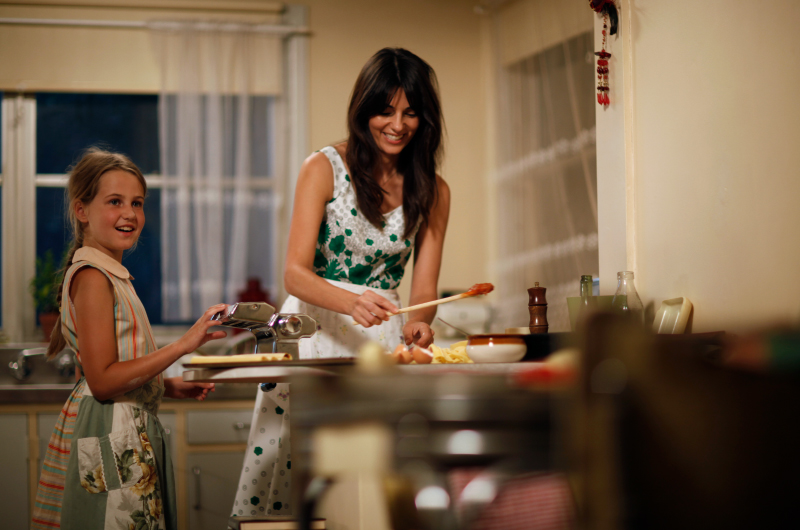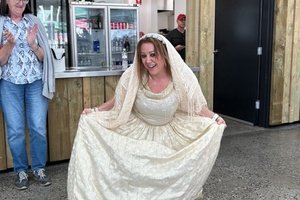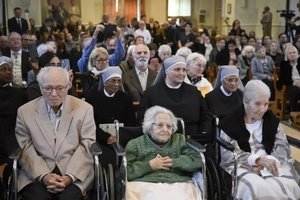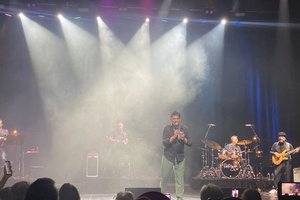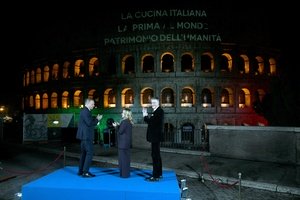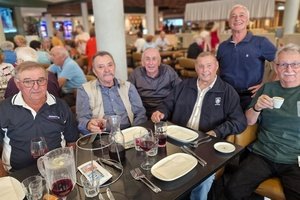The story follows individuals in a small community who deal with the lasting impact of global conflict.
In a time of great social upheaval, the film’s protagonist, Leo, finds himself raising his two children alone.
Though introverted, Leo is forced to seek help, and starts to get to know the new Italian migrants in town.
One of his colleagues suggests that his sister, Maria, could help Leo with his domestic duties and act as a “surrogate housewife”.
The film portrays the insidious effects of emotional isolation in the wake of significant social changes: waves of immigration, protests against the Vietnam War, urbanisation and women’s liberation movements.
“This film is my way of trying to understand the intersection between humanity and belonging,” Wilson said.
“I wanted to explore how individuals recognise and cope with factors beyond our control.”
Wilson grew up in Tocumwal, a town on the border of New South Wales and Victoria, on the banks of the Murray River.
The town had a large Italian community, full of migrants from Sicily and Calabria.
The film’s director of photography, Stefan Duscio, grew up in the town of Cobram, where his Sicilian father chose to settle after migrating from Italy.
“A place like that never leaves you,” Wilson said.
“As a boy, I moved to the city, and then abroad, but I always remembered that small town on the river.
“A great many Sicilians and Calabrians settled in town after World War II and brought their culture and history with them.
“They became part of my childhood: I remember visiting my classmates, and their grandmothers would be making limoncello and salami.
“I wanted this film to be a celebration of that time.”
Prominent Italo-Australian actress, singer and cookbook author Silvia Colloca plays the role of vibrant Italian migrant, Maria.
“I was looking for a person who could express warmth and poetry,” Wilson said.
“Colloca brought passion and soul to the role; she even asked to actually cook during the scenes, to channel her mother and grandmother.
“She reminded me of the Italian women who were friends with my mother throughout my childhood.”
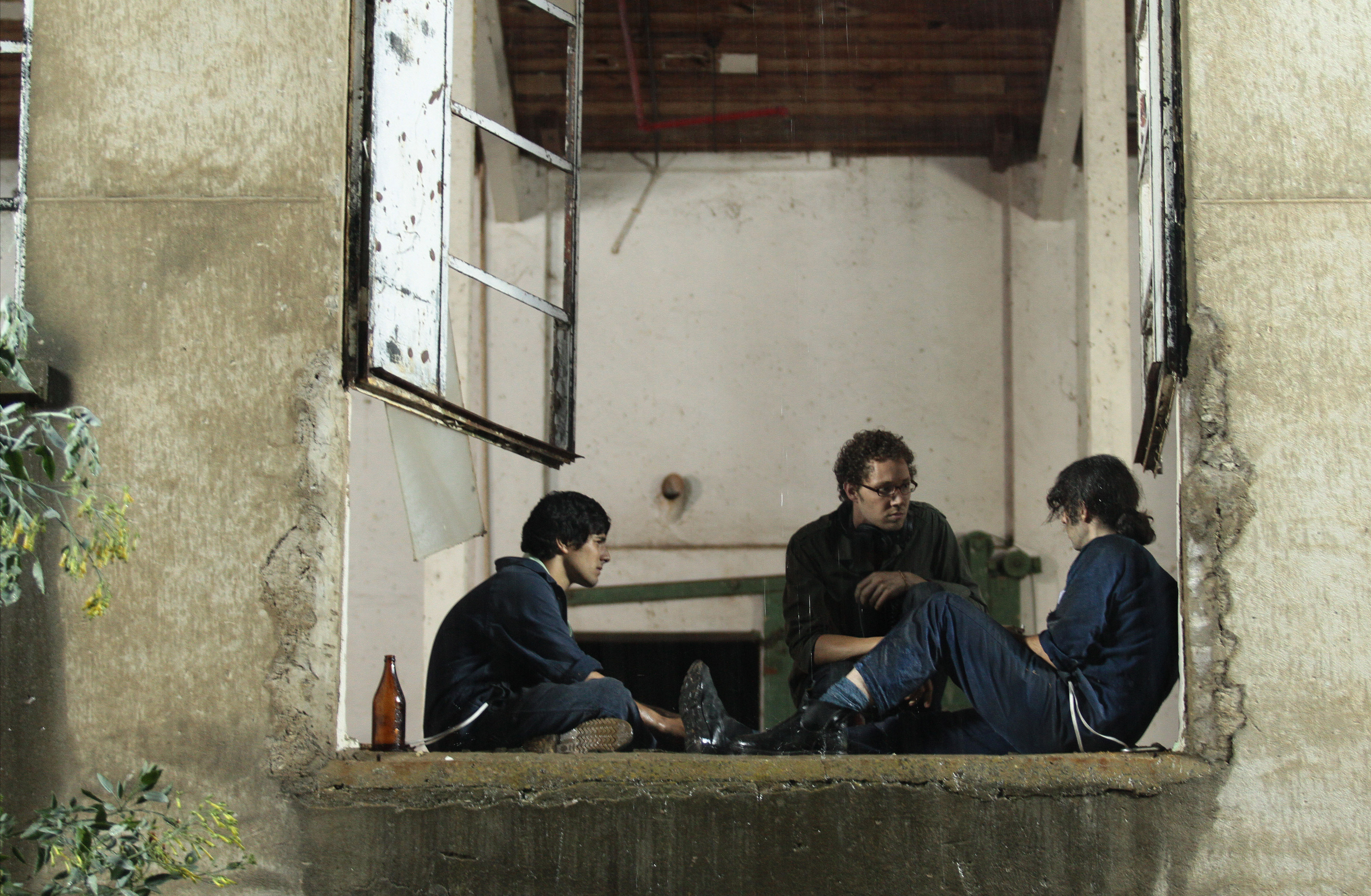
A shot from the set of ‘Little Tornadoes’: director Aaron Wilson (centre) with actors Mark Leonard Winter (right) and Fabio Motta
Central to the storyline of the film is the environment created by the location, a small town where every difference is noticeable.
“In the beginning people were afraid and resentful of people or things that were different,” Wilson said.
“Those dissimilarities were then embraced and morphed into something new – something stronger.
“As we have seen in regional areas, Australia as a whole has been enriched by migrants.”
Having shot the film in a rural area with strong Italian ties, Wilson was eager to find somewhere similar in Melbourne’s inner city.
The film will officially debut in Melbourne’s inner suburb of Carlton on April 28, at a “community gala evening” held at Cinema Nova.
This exclusive event will be accompanied by a red carpet, a screening of the film and a chance to meet the cast and crew.
“Due to the COVID-19 restrictions in place last year, we were only able to debut the film via online events as part of the Melbourne International Film Festival, the Brisbane International Film Festival and CinefestOZ in Western Australia,” Wilson said.
“After all the uncertainties of the past few years, it’s important to unite the community and celebrate diversity. What better way to do that than through cinema?”
Thursday night’s event will begin at 5.30 pm at Lygon Court, where guests will be treated to drinks from Campari, which is sponsoring the event.
Two sessions with the cast will follow at Cinema Nova, at 6.45 pm and 7.15 pm, and a party will take place afterwards.
The film will be screened in all Australian cinemas from May 12 onwards.
For more information or to buy tickets, visit the website.

